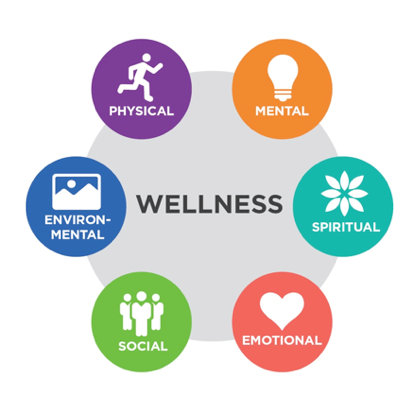
Understanding the Link Between Mental Health and Overall Wellbeing
Mental health is a critical component of overall well-being. It encompasses our emotional, psychological, and social well-being, and affects how we think, feel, and act. When our mental health is disrupted, it can have significant consequences on our overall wellbeing. This article explores the link between mental health and overall wellbeing, highlighting the importance of taking care of both aspects to lead a fulfilling and healthy life.
What is Mental Health?
Mental health refers to our emotional, psychological, and social well-being. It affects how we think, feel, and act, impacting our ability to handle stress, relate to others, and make choices. Mental health is essential at every stage of life, from childhood and adolescence through adulthood.
The Connection with Overall Wellbeing
Overall wellbeing encompasses various factors such as physical health, social relationships, and life satisfaction. Mental health plays a crucial role in each of these areas. When our mental health is in good condition, we have better coping mechanisms, stronger relationships, and a greater sense of purpose in life.
Conversely, poor mental health can lead to a range of challenges. It can affect our ability to manage stress effectively, maintain healthy relationships, and make positive life choices. Mental health issues such as anxiety, depression, and substance abuse often accompany other health problems, making it necessary to address mental health alongside physical health.
Improving Mental Health for Enhanced Wellbeing
To promote overall wellbeing, it is crucial to prioritize and care for our mental health. Here are some strategies to help improve mental health:
1. Prioritize Self-Care
Engage in activities that bring you joy and relaxation. Take time for yourself, practice self-compassion, and engage in hobbies or activities that help reduce stress.
2. Build and Maintain Social Connections
Strong relationships and a supportive social network can have a positive impact on mental health. Foster connections with friends, family, and community members.
3. Seek Professional Help
If you are experiencing persistent mental health challenges, reach out to a mental health professional. They can provide valuable guidance and support tailored to your specific needs.
4. Stay Physically Active
Regular exercise has been shown to improve mental health by releasing endorphins and reducing symptoms of anxiety and depression. Find activities that you enjoy and incorporate them into your routine.
5. Practice Mindfulness and Stress-Reduction Techniques
Mindfulness meditation, deep breathing exercises, and other stress-reduction techniques can help calm the mind and promote mental wellbeing. Explore different techniques and find what works best for you.
Conclusion
Mental health is undeniably intertwined with overall wellbeing. By understanding and prioritizing our mental health, we can improve our overall wellbeing and lead fulfilling lives. Engaging in self-care, building supportive relationships, seeking professional help when needed, staying physically active, and practicing stress-reduction techniques are all valuable tools to enhance mental health and overall wellbeing.

